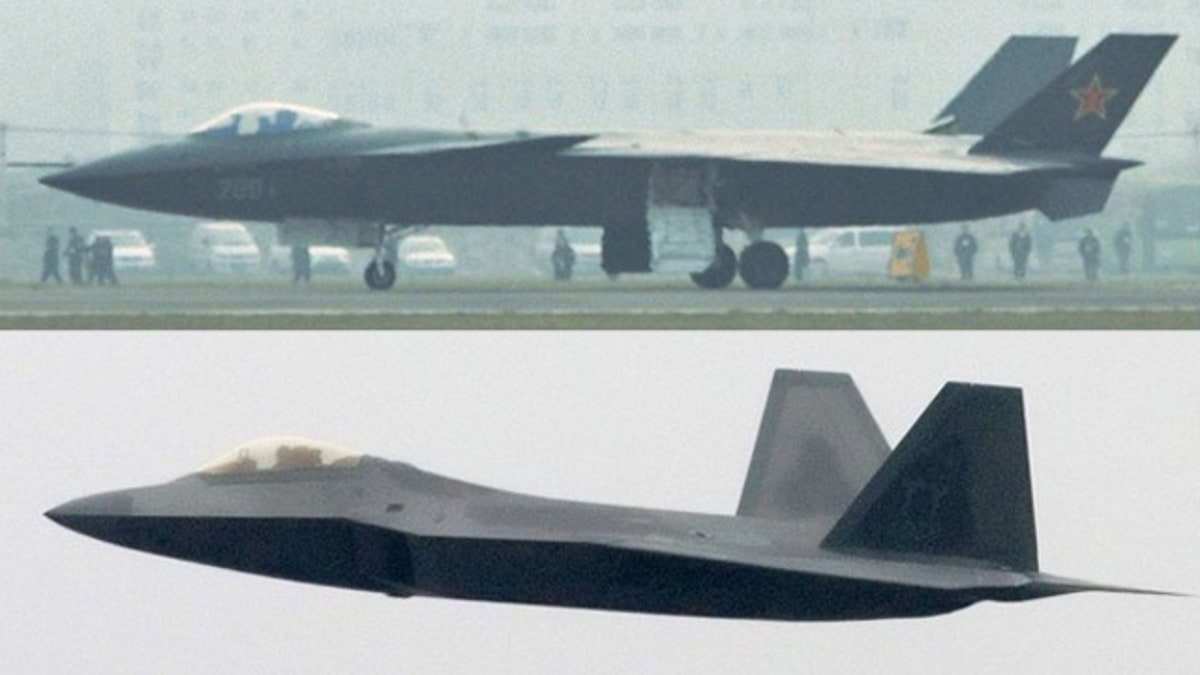
China's new J-20 stealth fighter (top) photographed in Chengdu, Sichuan province, January 7, 2011. Some analysts have said China may be making faster-than-expected progress in developing a rival to the F-22 Raptor (below). (AP)
China appears to have staged a second test-flight of a new stealth fighter jet, a state-owned newspaper said on Tuesday, which if true could be another step toward narrowing the military gap with the United States.
Photographs of the J-20 stealth fighter jet prototype were circulating on online military forums, the Global Times said, but it did not confirm the flight nor the authenticity of the photographs.
The photos could not be verified by Reuters.
The popular tabloid, owned by the Communist Party mouthpiece, the People's Daily, showed a photograph of a grey fighter plane and a caption that said "an alleged J-20 prototype prepares to take off" from an airfield in Chengdu in southwestern Sichuan province on Sunday.
The aircraft made several passes and waggled its wings to salute the crowd near the airfield," the Global Times quoted an anonymous person as saying.
China's Defense Ministry did not immediately respond to a request for comment.
Reports of China's first test-flight of the J-20 in early January had been widely circulated on Chinese Internet blogs and online news sites including the Global Times before the government confirmed the flight during a visit by U.S. Defense Secretary Robert Gates.
The claims of a successful second test flight for the advanced fighter follow China's warning in late March that it faced an increasingly volatile Asian region where the United States has expanded its strategic footprint.
Some analysts have said that the first few photos of the J-20 suggest that China may be making faster-than-expected progress in developing a rival to Lockheed Martin's F-22 Raptor, the world's only operational stealth fighter designed to evade detection by radar.
The latest pictures may heighten concern about China's military build-up, including possible deployment in 2011 of its first aircraft carrier and a new anti-ship ballistic missile that is seen as a threat to U.S. aircraft carriers.
Chinese military and political sources say Beijing could launch its first aircraft carrier in 2011, a year earlier than U.S. military analysts had expected.








































